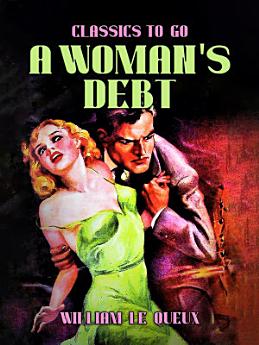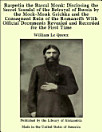A Woman's Debt
Jan 2024 · Otbebookpublishing
Ebook
240
Pages
family_home
Eligible
info
reportRatings and reviews aren’t verified Learn More
About this ebook
Excerpt: ""You're a lucky chap, Croxton, to have got the measure of the old man so well. I don't suppose it will be long before you blossom into a partner." The speaker, Archie Brookes, a slim elegant young fellow, very good-looking but with a somewhat effeminate expression, cast a sidelong glance at his companion as he uttered the remark, to observe covertly what impression it made upon him. There was no love lost between these two young men, although they were thrown constantly into each other's society. Richard Croxton was the confidential secretary of Rupert Morrice, the well-known foreign banker and financier, whose firm had colossal dealings abroad. Brookes was a nephew and great favourite of the financier's wife, the son of a dearly beloved sister who had died many years ago. In consequence of that relationship, and the partiality of his aunt, he was a frequent, almost a daily, visitor to the big house in Deanery Street, Park Lane, where the Morrices entertained largely and dispensed lavish hospitality. Croxton's voice was very cold, as he replied to the other's suggestion. "Those are the sort of things one does not permit oneself to speculate about, much less to discuss. "For a second an angry gleam showed in the light blue eyes of Brookes. Not troubled with very refined feelings himself, he thought it was rank hypocrisy on the part of Richard to refuse to talk to a man of his own age about prospects upon which he must often have meditated. But the angry gleam passed away quickly. Archie Brookes was a very self-contained young man. He seldom allowed his temper to get the better of him, and he never indulged in sarcastic remarks."
About the author
William Le Queux (1864-1927) was a British author, journalist, and adventurer whose prolific output and sensational storytelling left an indelible mark on early 20th-century literature. Born in London to a French father and an English mother, Le Queux's cosmopolitan upbringing and insatiable curiosity fueled his writing career. His works often blurred the lines between fiction and reality, captivating readers with tales of espionage, international intrigue, and looming threats of war.Le Queux's most notable contribution to literature is his pioneering role in the spy novel genre. His vivid imagination and knack for weaving intricate plots predated and influenced the likes of John Buchan and Ian Fleming. His works, such as "The Great War in England in 1897" and "The Invasion of 1910," played on contemporary fears of foreign invasion, reflecting and shaping public sentiment during a time of geopolitical tension.A master of self-promotion, Le Queux often claimed to have inside knowledge of government secrets and espionage activities, a tactic that both intrigued and alarmed his readers. His controversial assertions and the sensational nature of his writing sometimes drew skepticism and criticism, but they also ensured his lasting popularity.Le Queux was not just a writer of fiction; he was also a fervent patriot and an early advocate for national preparedness. His works often carried a didactic tone, urging vigilance and readiness in the face of potential threats. This blend of entertainment and advocacy made his novels more than just thrilling reads; they were calls to action that resonated with a generation on the brink of global conflict.In an era where the boundaries between fact and fiction were increasingly porous, William Le Queux stood out as a figure who deftly navigated both realms, leaving a legacy that continues to influence the spy genre and the way we think about national security.
Rate this ebook
Tell us what you think.
Reading information
Smartphones and tablets
Install the Google Play Books app for Android and iPad/iPhone. It syncs automatically with your account and allows you to read online or offline wherever you are.
Laptops and computers
You can listen to audiobooks purchased on Google Play using your computer's web browser.
eReaders and other devices
To read on e-ink devices like Kobo eReaders, you'll need to download a file and transfer it to your device. Follow the detailed Help Center instructions to transfer the files to supported eReaders.








